BMW 5 Series Saloon vs Volvo XC60 - Differences and prices compared
Compare performance (727 HP vs 455 HP), boot space and price (50800 £ vs 49200 £ ) at a glance. Find out which car is the better choice for you – BMW 5 Series Saloon or Volvo XC60?
Costs and Efficiency:
Looking at overall running costs, both models reveal some interesting differences in everyday economy.
Volvo XC60 has a minimal advantage in terms of price – it starts at 49200 £ , while the BMW 5 Series Saloon costs 50800 £ . That’s a price difference of around 1637 £.
Fuel consumption also shows a difference: BMW 5 Series Saloon manages with 2.10 L and is therefore evident more efficient than the Volvo XC60 with 2.80 L. The difference is about 0.70 L per 100 km.
As for electric range, the BMW 5 Series Saloon performs clearly perceptible better – achieving up to 105 km, about 23 km more than the Volvo XC60.
Engine and Performance:
Power, torque and acceleration are the classic benchmarks for car enthusiasts – and here, some clear differences start to show.
When it comes to engine power, the BMW 5 Series Saloon has a noticeable edge – offering 727 HP compared to 455 HP. That’s roughly 272 HP more horsepower.
In acceleration from 0 to 100 km/h, the BMW 5 Series Saloon is decisively quicker – completing the sprint in 3.50 s, while the Volvo XC60 takes 4.90 s. That’s about 1.40 s faster.
In terms of top speed, the BMW 5 Series Saloon performs clearly perceptible better – reaching 250 km/h, while the Volvo XC60 tops out at 180 km/h. The difference is around 70 km/h.
There’s also a difference in torque: BMW 5 Series Saloon pulls noticeable stronger with 1000 Nm compared to 709 Nm. That’s about 291 Nm difference.
Space and Everyday Use:
Beyond pure performance, interior space and usability matter most in daily life. This is where you see which car is more practical and versatile.
Both vehicles offer seating for 5 people.
In curb weight, BMW 5 Series Saloon is hardly perceptible lighter – 1800 kg compared to 1900 kg. The difference is around 100 kg.
In terms of boot space, the BMW 5 Series Saloon offers minimal more room – 520 L compared to 483 L. That’s a difference of about 37 L.
When it comes to payload, BMW 5 Series Saloon minimal takes the win – 600 kg compared to 550 kg. That’s a difference of about 50 kg.
Who wins the race in the data check?
The BMW 5 Series Saloon sits well ahead of its rival in the objective data comparison.
This result only shows which model scores more points on paper – not which of the two cars feels right for you.
Costs and Consumption
View detailed analysis
Engine and Performance
View detailed analysis
Dimensions and Body
View detailed analysis
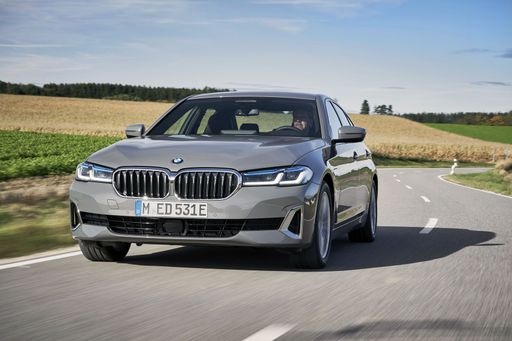
BMW 5 Series Saloon
BMW 5 Series Saloon
The BMW 5 Series Saloon blends executive poise with a driver's instinct, delivering a supple, refined cabin and a chassis that prefers composed authority over bravado. For buyers who want a grown-up commuter that still enjoys a twisty road, it’s the kind of car that keeps your colleagues impressed and your weekend grin intact.
details
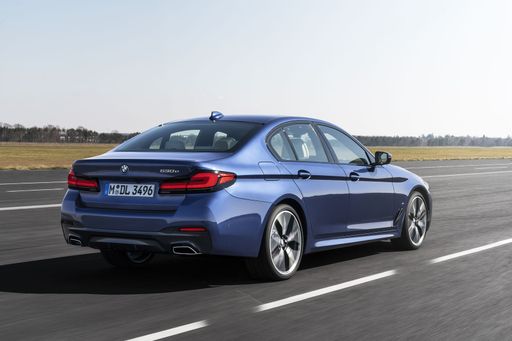
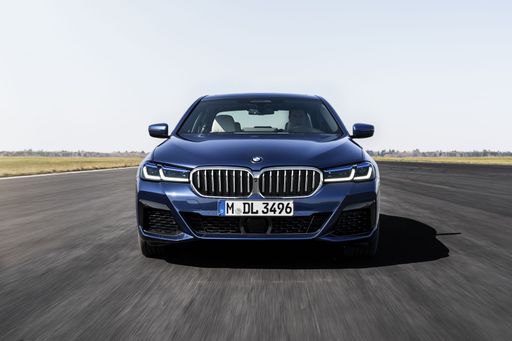
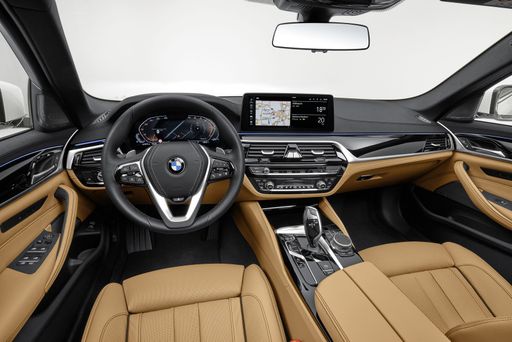
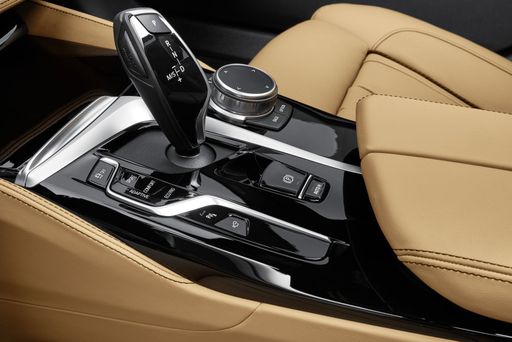
Volvo XC60
The Volvo XC60 blends Scandinavian calm with confident presence, offering a cabin that feels plush without shouting for attention. It’s a smart pick for buyers after a composed ride, clever practicality and thoughtful safety touches — it even makes running the family shuttle feel almost serene, which is a small miracle.
details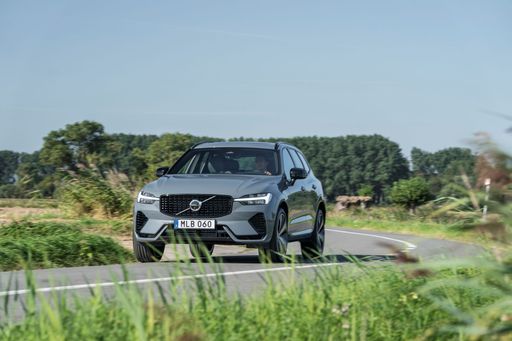
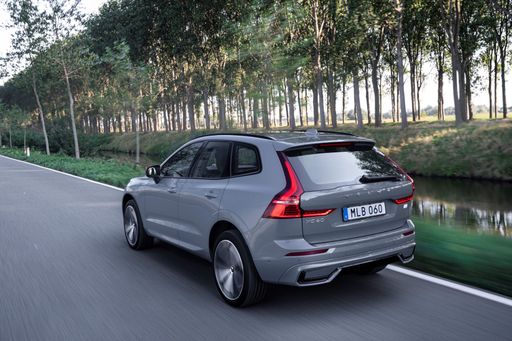
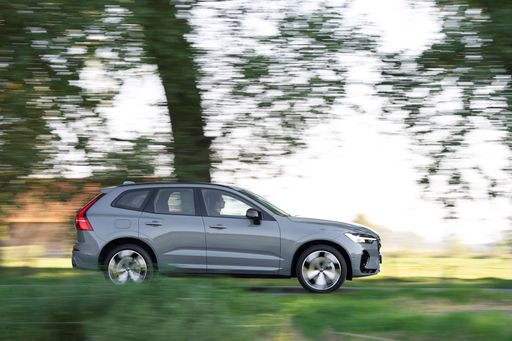
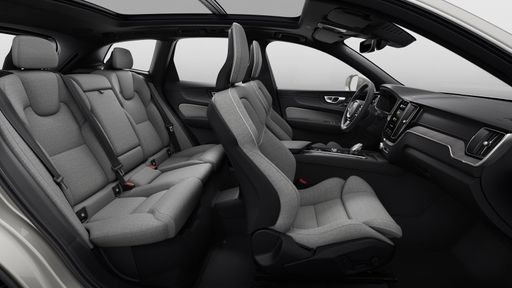
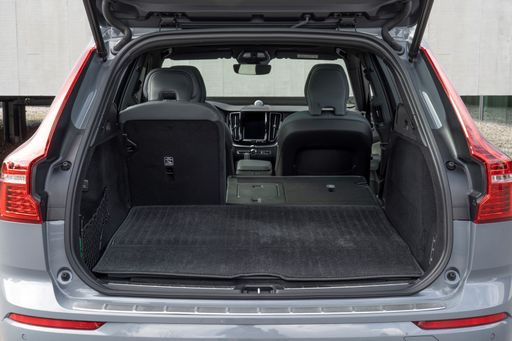
Costs and Consumption |
|
|---|---|
|
Price
50800 - 123800 £
|
Price
49200 - 75100 £
|
|
Consumption L/100km
2.1 - 5.8 L
|
Consumption L/100km
2.8 - 7.5 L
|
|
Consumption kWh/100km
-
|
Consumption kWh/100km
-
|
|
Electric Range
68 - 105 km
|
Electric Range
74 - 82 km
|
|
Battery Capacity
18.6 - 19.4 kWh
|
Battery Capacity
14.70 kWh
|
|
co2
48 - 152 g/km
|
co2
64 - 169 g/km
|
|
Fuel tank capacity
60 L
|
Fuel tank capacity
71 L
|
Dimensions and Body |
|
|---|---|
|
Body Type
Sedan
|
Body Type
SUV
|
|
Seats
5
|
Seats
5
|
|
Doors
4
|
Doors
5
|
|
Curb weight
1800 - 2510 kg
|
Curb weight
1900 - 2150 kg
|
|
Trunk capacity
466 - 520 L
|
Trunk capacity
468 - 483 L
|
|
Length
5060 - 5096 mm
|
Length
4708 mm
|
|
Width
1900 - 1970 mm
|
Width
1902 mm
|
|
Height
1510 - 1515 mm
|
Height
1651 - 1655 mm
|
|
Max trunk capacity
-
|
Max trunk capacity
1528 - 1543 L
|
|
Payload
430 - 600 kg
|
Payload
510 - 550 kg
|
Engine and Performance |
|
|---|---|
|
Engine Type
Diesel MHEV, Petrol MHEV, Plugin Hybrid
|
Engine Type
Petrol MHEV, Plugin Hybrid
|
|
Transmission
Automatic
|
Transmission
Automatic
|
|
Transmission Detail
Automatic Gearbox
|
Transmission Detail
Automatic Gearbox
|
|
Drive Type
Rear-Wheel Drive, All-Wheel Drive
|
Drive Type
All-Wheel Drive
|
|
Power HP
197 - 727 HP
|
Power HP
250 - 455 HP
|
|
Acceleration 0-100km/h
3.5 - 7.5 s
|
Acceleration 0-100km/h
4.9 - 6.9 s
|
|
Max Speed
225 - 250 km/h
|
Max Speed
180 km/h
|
|
Torque
330 - 1000 Nm
|
Torque
350 - 709 Nm
|
|
Number of Cylinders
4 - 8
|
Number of Cylinders
4
|
|
Power kW
145 - 535 kW
|
Power kW
184 - 335 kW
|
|
Engine capacity
1995 - 4395 cm3
|
Engine capacity
1969 cm3
|
General |
|
|---|---|
|
Model Year
2023 - 2025
|
Model Year
2025
|
|
CO2 Efficiency Class
D, E, B, C
|
CO2 Efficiency Class
F, B
|
|
Brand
BMW
|
Brand
Volvo
|
What drivetrain options does the BMW 5 Series Saloon have?
Available configurations include Rear-Wheel Drive or All-Wheel Drive.
